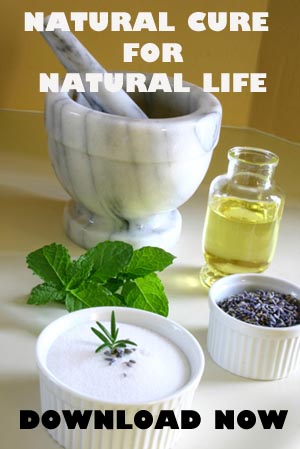Is there anything else I can do for swelling (edema) in both legs other than elevating them? Some natural cure?
August 17, 2011 by admin
Filed under Common Questions
Question by Sumaya: Is there anything else I can do for swelling (edema) in both legs other than elevating them? Some natural cure?
I’m looking for a natural cure.
Best answer:
Answer by Tony I
Besides elevating your feet to allow the fluid collected in the legs to go to the circulatory system and from there to the kidneys for excretion, here is what I have on Edema (yes, it is copied and pasted, but it is copied from my own website)
Edema is swelling that is caused by fluid trapped in your body’s tissues. Edema happens most often in the feet, ankles, and legs.
Common Causes of Edema are:
Low potassium levels
Congestive Heart Failure
Lung, kidney, and thyroid diseases
Pregnancy
Edema can occur as a result of gravity, especially from sitting or standing in one place for too long. A way to test for edema, even if there is no swelling is to press the suspected area. Ankles are usually the first area affected. If you leave an indentation, edema is present.
If congestive heart failure is present, mix one teaspoon of cayenne pepper in half a cup of lukewarm water. You can use cayenne capsules if this is too difficult.
Exercising in a swimming pool is very effective. The water temperature should be 80 to 90 degrees.
Avoid diuretics. Though diuretics are effective for the flushing out of excess water in the people with the heart, kidney or liver disease, they can also cause rebound edema. Continuous usage will activate the salt and water retaining hormones and when stopped, these hormones are activated and cause water retention.
Diet is very important. Avoid salt and processed foods, pizza, fast foods, junk food, sodas, etc. Avoid salt and eat a low carbohydrate diet. Salt causes body to retain water. Carbohydrate has more water content. Eat protein and fat rich food. Avoid fruits and vegetables because they increase the fluid level in the body.
Mustard oil is an effective home remedy for edema. Take some warm mustard oil and rub it on the affected areas. Soak 2 teaspoons of mustard seeds in water and apply the solution to the affected areas. Apple cider vinegar helps to remove excess fluid in the body cells and cavities.
Supplements which may help edema are potassium and bromelain.
Exercise as much as possible. Exercise has been shown to reduce the water retention by flushing out the water and salt through sweating, higher respiration and increased urine flow. Walking is excellent exercise. If there is shortness of breath while moving, do stationary exercises, such as pointing your toes downward, then raising them up as high as possible. This pumps up the calf and foot muscles. Raising your arms will also help.
Increase fluid intake. Water moves through the kidneys and bladder thus diluting the urine. It becomes easier for the kidneys to flush diluted urine out along with the salt contained in it. Plain water is the best option, since juices, sodas and colas have salt content.
Sip on herbal teas. Many herbs are slightly diuretic. Parsley is the best known one – and it has the added benefit of helping remove toxic heavy metals. Take two teaspoons of dried leaves for each cup of boiling water and steep for ten minutes. Drink three cups a day.
Give your answer to this question below!



Leg swelling is multifactorial but the most common causes are incompetent veins, protein malnutrition and congestive heart failure. There are many other diseases that can result in leg edema. Only a doctor can diagnose that, not people who think there is one cause and treatment for everything. The treatment very much depends on the underlying cause. If your doctor has told you to elevate them that suggests it is incompetent veins. Wearing compression stockings is also useful. Diuretics are not indicated if that is the cause of your swollen legs.
Tony I Copypaste’s advice is once again detailed, simplistic and wrong as his “one true cause of all disease” mantra is that everything can be cured with diet, and ignores that edema may be a sign of serious underlying medical conditions.
I just want to echo what SkepDoc has already said really; treatment depends entirely on the cause of your oedema and there could be serious underlying causes. Empirical treatment with diuretics is inappropriate without a clear diagnosis.
You need to see your GP about this. The only two things I would advise in the meantime is compression (full length compression stockings) and elevation.
EDIT:
Tony your advice isn’t really helpful at all. One or two things you mentioned might be useful for idiopathic oedema (although natural treatments for this problem in general tend to be quite ineffective). However, at this stage the asker really needs to discuss the problems she is having with her GP.
There is no single cure-all and as I said above, treatment depends on the cause.
Just picking up on something else Tony said about diuretics; conventional management does need to be watched in this instance, I agree.
There are a limited number of medical conditions where the use of diuretics is appropriate. Diuretics should be avoided in simple orthostatic oedema.
If you give a patient with dependant oedema diuretics, after a short while, the hypothalamus will notice that the urine output has increased and it will secrete increased amounts of ant-diuretic hormone in order to reduce the urine output and the leg swelling tends to reoccur. The same will happen if you increase the dose too. Some health care professionals still fail to realise this unfortunately. The body electrolyte balance becomes disturbed, kidney function can be affected and it can also lead to dehydration.
Another problem is that the body quickly becomes dependant on the new balance of diuretic+ elevated ADH release and if attempts are made in reducing the diuretic, the peripheral oedema will worsen.
SkepDoc is, as usual, absolutely correct. I always get a chuckle at some of Tony I’s ridiculous paste-and-glue answers.
Sodium encourages water retention. Hence excess sodium intake is bad for edema and you should use less salt in cooking and at the table. Smoked foods such as bacon, tinned or dried soups and other foods involving additives should be avoided.
·
Potassium on the other hand helps to counteract effects of excess sodium and therefore its intake should be increased. Its levels are carefully regulated by hormones and any excess intake results in it being acting as a diuretic, stimulating the kidneys to produce more urine and expel waste at a faster pace. Potassium rich sources basically include plant foods like avocados, pulses, nuts, dried fruits, tomatoes and fruits like bananas and oranges.
·
Other foods (natural diuretics) that help in dispelling water from the body are horseradish, beetroot, nettle, celery, asparagus, parsley, grapes, green beans, leafy greens, pineapple, pumpkin, onion, leeks, and garlic.
·
Supplements of coumarin, hydroxyethylrutosides, diosmin and other flavonoids, such as quercetin, rutin, or anthocyanosides (from bilberry), are also recommended by doctors in treating or bringing relief to edema patients.
Walking strengthens the leg muscles making them strong enough to pump back the excess fluid to the heart.
·
If you also have congested lungs, then rest your upper part a little high on the pillows helping out the kidneys expel urine more frequently.
Treating edema with natural and holistic remedies can also provide rapid relief for swelling and improve the blood flow through the veins. Using homeopathic and herbal remedies is a safer, gentler alternative that can improve overall health. Herbs such as Agathosma betulina (buchu) offer effective diuretic and anti-inflammatory properties and have been used by the indigenous people of South Africa for centuries. Taraxacum officinale (Dandelion) and Olea europea help to balance blood pressure, assist liver and gall bladder functioning and improve circulation.
You may have details on these remedies here http://www.healthherbsandnutrition.com/remedies/w/waterretention.htm